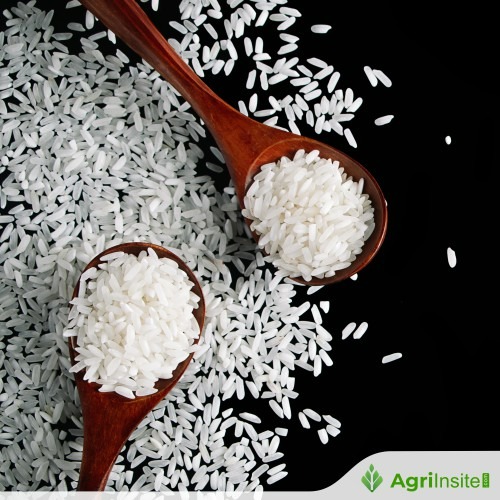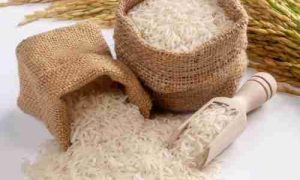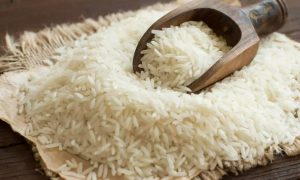Bangladesh : Sadhan formula behind price hike in rice

During his tenure as Food Minister, Sadhan Chandra Majumder allegedly orchestrated a rice syndicate in Naogaon, illegally stockpiling thousands of tons of rice and paddy with family members and associates. By creating artificial shortages, manipulating government procurement, and controlling tenders, the syndicate profited hundreds of crores, destabilizing local and national rice markets.
During his tenure as Food Minister, Sadhan Chandra Majumder formed a syndicate in the rice sector. Through this, he amassed rice during the harvesting season and later sold it at higher prices. He was the mastermind behind illegal stockpiling of rice in various warehouses of Naogaon district. He built this syndicate with his brothers, sisters, and relatives. By artificially creating crises, Sadhan destabilized the rice market and reaped excessive profits.
According to the Naogaon District Rice Mill Owners’ Group, there are 571 operational rice mills in the district, including 53 automatic mills and 518 husking mills. These mills produce at least 2,000 tons of rice daily. While local consumer demand across 11 upazilas of Naogaon was only 800 tons, the surplus rice was supposed to be supplied to different wholesale markets of the country. However, due to stockpiling by the syndicate members, artificial crises were created in the rice market for years. The former minister and his relatives pocketed hundreds of crores of taka by holding the common people hostage.
Naogaon rice trader Manik Pramanik said, “During the tenure of former Food Minister Sadhan Chandra Majumder, big millers used to stockpile thousands of tons of old rice and paddy in their warehouses. Because of their syndicate, the rice market never stabilized. They looted hundreds of crores of taka in this way.”
Several rice traders from Porsha upazila said that the former minister’s brother, Manoranjan Majumder (locally known as Mona), and his syndicate members used to grab all the food ministry tenders. As a result, most rice mill owners of Naogaon were dissatisfied with the minister.
In Sultanpur Mohalla of Naogaon town, Ghosh Automatic Rice Mill used to stockpile thousands of tons of rice year after year. Its owner, Dwijen Ghosh, claimed to be a relative of Sadhan. After the fall of the Sheikh Hasina-led government, he is now untraceable.
In Niamatpur, the former minister’s brother, Manoranjan Majumder Mona, owned a rice mill. Prominent rice traders had to comply with his directions. Rice trader Shafiqul Islam also claimed to be close to Awami League leaders. Although there were allegations of illegal rice and paddy stockpiling against them, no raids were ever conducted.
Manoranjan Mona also owned a large rice mill called Sufia Agro Aromatic Automatic Rice Mill in Sultanpur. Most of the illegal hoarders in the district became influential because of him. This clique always operated the syndicate by claiming close ties with the former Food Minister and policymakers of the government. The administration never disturbed them during anti-hoarding drives.
Sadhan Chandra Majumder also established control over wheat and rice imports. He secretly published tender notices with his chosen people and ensured that his associates won those tenders. He showed greater interest in imports rather than government collection. A contractor named Sohel—widely known as “Wheat Sohel” in the food department—assisted him in these activities. This way, they looted crores of taka.
Naogaon was entirely under the control of Sadhan’s younger brother Manoranjan Majumder and his son-in-law, Nasim Ahmed, the general secretary of the municipal Awami League. Even a slight price fluctuation in Naogaon, one of the country’s major rice trading hubs, would impact the entire rice market. Yet illegal stockpiling of paddy and rice was widespread in the district. Most of the millers were Sadhan’s relatives. Rice trader Manik Pramanik reiterated that big millers stockpiled thousands of tons of old rice and paddy during Sadhan’s tenure. Because of their syndicate, the rice market never stabilized. They looted hundreds of crores of taka.
Many businessmen in Porsha said that the minister’s brother’s syndicate took control of all food ministry tenders. For this reason, most rice mill owners of Naogaon were unhappy with the minister.
Year after year, thousands of tons of rice were stockpiled at Ghosh Automatic Rice Mill in Sultanpur, whose owner introduced himself as a relative of Sadhan. After the government’s fall, he is now missing.
The former minister’s brother, Manoranjan Majumder Mona, owned a rice mill in Niamatpur. Big rice traders had no choice but to follow his lead. Rice trader Shafiqul Islam also claimed to be close to Awami League leaders. Despite allegations of illegal hoarding of rice and paddy, there was never any action against them.
Mona’s Sufia Agro Aromatic Automatic Rice Mill in Sultanpur was one of the biggest in the area. Most illegal hoarders in the district gained influence because of him. This clique always ran the syndicate under the pretense of being close to the former Food Minister and government policymakers.
Thus, during his tenure as minister, Sadhan created his own syndicate. They bought rice and paddy from farmers at low prices and illegally hoarded them, creating artificial crises in the market. A review of Sadhan’s five years in office shows that the government set procurement prices abnormally low, which discouraged farmers. The official purchase prices of rice and paddy were so low that farmers could not even recover their production costs. Yet, the government often delayed procurement, holding farmers hostage. Eventually, helpless farmers were forced to sell paddy and wheat to private mill owners. That was Sadhan’s manipulation. His associates bought and hoarded these crops, driving up rice prices drastically. The hoarders then sold rice in open markets at double or triple the price.
Calculations show that during Sadhan’s five-year tenure, the retail price of different types of rice increased by Tk8 to Tk20 per kilogram.
To Read more about Rice News continue reading Agriinsite.com
Source : Daily Sun














